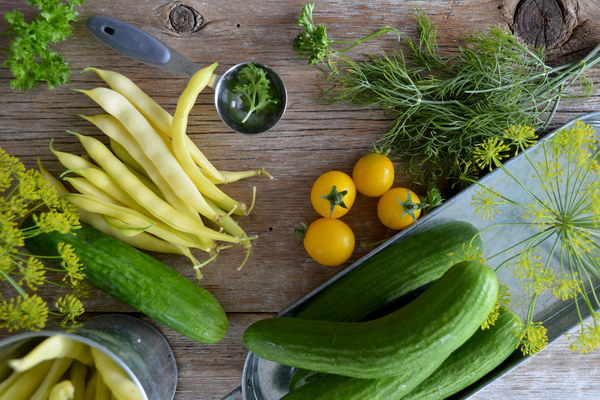Breath of Vitality A Comprehensive Guide to Lung and Qi Cultivation
In the pursuit of holistic well-being, the practice of lung and qi cultivation holds a significant place. This article delves into the art of nurturing the lungs and Qi, exploring traditional methods and modern practices that can enhance respiratory health and overall vitality.
Understanding Lung and Qi in Traditional Chinese Medicine (TCM)
In Traditional Chinese Medicine, the lungs are considered the primary organ responsible for the intake of oxygen and the elimination of carbon dioxide. They are closely associated with the respiratory system but also play a crucial role in the immune system and the regulation of emotions.
Qi, or vital energy, is the life force that flows through the body, supporting all physiological functions. A healthy lung and Qi are essential for good health, as they are responsible for the smooth exchange of oxygen and the maintenance of body temperature.
Nurturing the Lungs: A Holistic Approach
1. Breathing Exercises: Deep, mindful breathing is a cornerstone of lung and Qi cultivation. Practices such as qigong and tai chi emphasize slow, deep breaths that increase lung capacity and improve oxygen intake.
2. Adequate Hydration: Staying hydrated helps to keep the respiratory system moist and facilitates the elimination of toxins from the body.

3. Healthy Diet: A balanced diet rich in fruits, vegetables, nuts, and lean proteins can support lung health. Foods that are beneficial for the lungs include ginger, turmeric, garlic, and leafy greens.
4. Avoiding Harmful Substances: Smoking, pollution, and secondhand smoke can significantly damage the lungs. Minimizing exposure to these harmful substances is essential for lung health.
5. Regular Exercise: Physical activity increases lung capacity and strengthens the respiratory muscles. Activities such as walking, jogging, swimming, and cycling are excellent choices.
Cultivating Qi: Enhancing Vitality
1. Mindfulness and Meditation: Cultivating a peaceful mind is essential for Qi cultivation. Practices such as meditation, yoga, and mindfulness can help reduce stress, which in turn enhances Qi flow.
2. Acupuncture and Chinese Herbs: Acupuncture and Chinese herbal medicine can help balance Qi and improve overall health. These treatments are tailored to the individual's specific needs and imbalances.
3. Proper Posture: Maintaining good posture encourages proper lung function and improves Qi flow. Avoid slouching and practice mindful posture throughout the day.
4. Sleep Hygiene: Quality sleep is crucial for Qi replenishment. Ensure a comfortable sleep environment and establish a regular sleep schedule to support lung and Qi health.
Modern Practices for Lung and Qi Cultivation
1. Aromatherapy: Essential oils such as eucalyptus, peppermint, and lavender can help open up the airways and promote relaxation, which is beneficial for both the lungs and Qi.
2. Inhalation Therapy: Using steam inhalation or a neti pot can help clear the nasal passages and improve lung function.
3. Respiratory Exercises: Specific exercises designed to strengthen the respiratory muscles can be found in online resources and can be performed at home.
Conclusion
Incorporating lung and Qi cultivation practices into daily life can lead to improved respiratory health, enhanced vitality, and overall well-being. Whether you choose to explore traditional methods or modern practices, the key to successful lung and Qi cultivation lies in consistency and mindfulness. Take a deep breath and embark on this journey to a healthier, more vibrant life.









